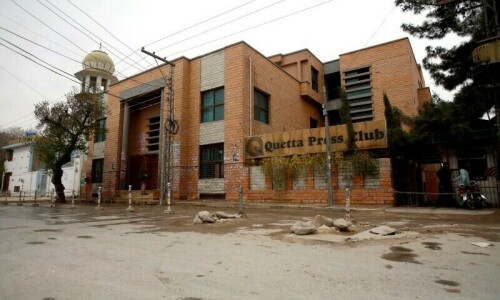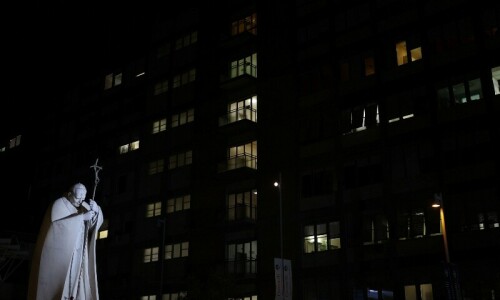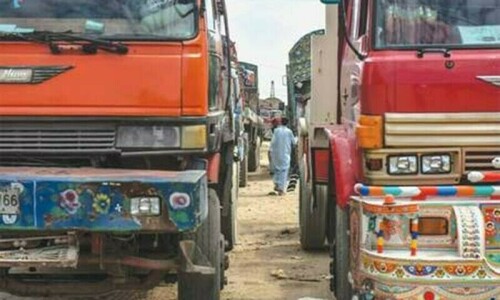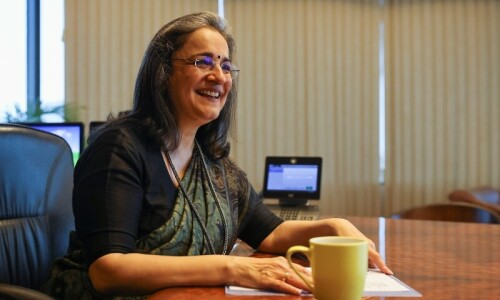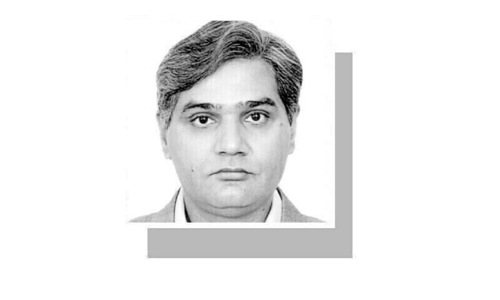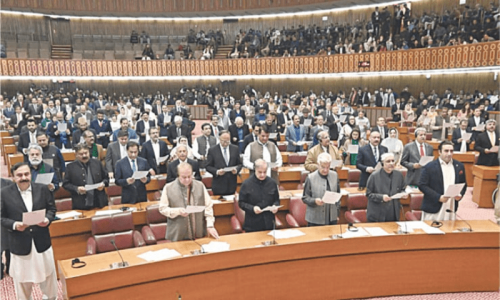WASHINGTON, Oct 10: The current financial crisis will make it more difficult for developing countries to protect their most vulnerable people from the impact of rising food and fuel costs and the situation will be worse in countries like Pakistan as they lack a network to protect the poor, says the World Bank.
The bank warns in a report, to be released on Sunday, that high food and fuel prices will increase the number of malnourished people around the world in 2008 by 44 million to 967 million.
It notes that most Pakistani families consume the same kind of wheat and any subsidy on the commodity will be untargeted.
It urges the government to “withstand pressure to act in ways that may not be efficient in addressing the needs of the poor”.
The bank’s vice president for South Asia, Praful Patel, notes that high international prices of petroleum and food commodities are creating challenges for Pakistan’s economy.
“There must be an appropriate safety net for the poor. The government has requested our support, and we will help ensure that there are smart subsidies to the poorest.”
He urges the government to make targeted and efficient programmes, including cash transfers, where leakage is minimised.
The report titled ‘Rising food and fuel prices: addressing the risks to future generations,’ points out that poor families around the world are being pushed to the brink of survival, causing irreparable damage to the health of millions of children. As families cut back on spending, there are also grave risks for the educational performance of poor children.
It notes that while food and fuel price increases may have moderated in recent months, they remain much higher than previous years and show few signs of declining significantly.
“While people in the developed world are focused on the financial crisis, many forget that a human crisis is rapidly unfolding in developing countries. It is pushing poor people to the brink of survival,” warns World Bank Group President Robert B. Zoellick.
The report, due to be presented to the Development Committee at the annual meetings of the World Bank and International Monetary Fund, says the food and fuel crisis could have long term effects on poor people and countries.
It says priority should be given to making targeted cash transfer programmes more generous; providing nutrition to infants and pregnant women; expanding “in-kind” food distribution programmes; using fee waivers, lifeline-pricing and other forms of targeted subsidies for poor users; and introducing additional measures to prevent children from dropping out of school.
The report argues that allocating the necessary amount of budget to finance an expansion of safety net programmes may require pruning spending in other areas.
But it notes that well-designed safety net programmes do not have to be prohibitively expensive to be effective. Some of the most successful programmes in the world cost well under one per cent of Gross Domestic Product.
In May, the World Bank launched a $1.2 billion rapid financing facility to help poor countries cope with the food crisis. Since then, around $850 million has been committed to finance seeds, plantings and feeding programmes.



